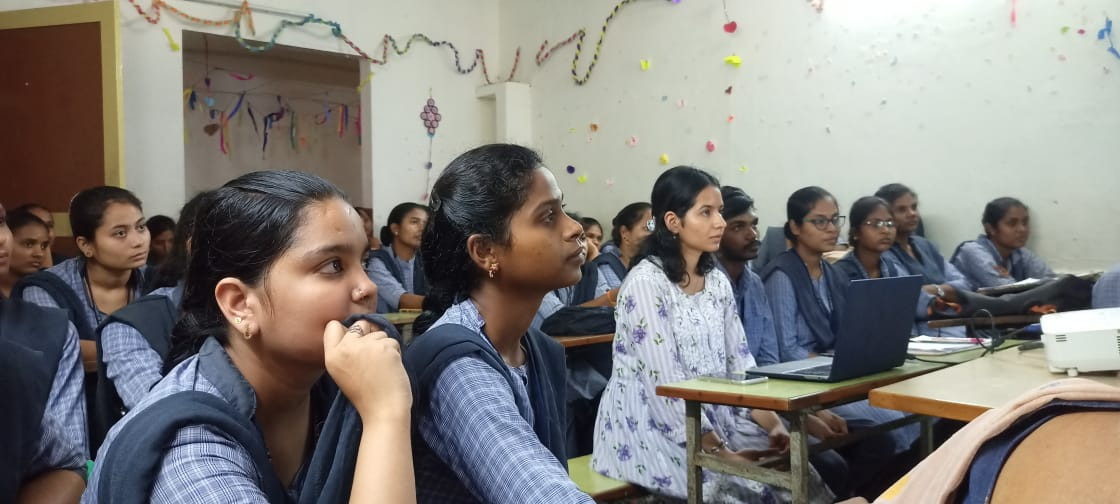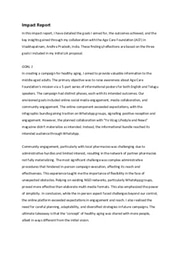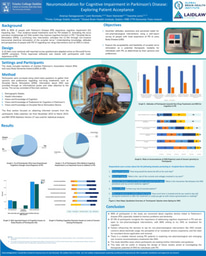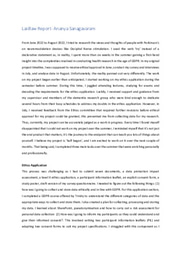The 3 things I learned over 18 ish months of Laidlaw!
Introduction
Over the course of the Laidlaw program, my understanding of what it means to be a global citizen has changed. At present, being a global citizen means being an attentive and culturally sensitive listener, willing to explore new contexts gently with an open mind. It is about asking questions respectfully and genuinely listening to responses, while also working out the answers through your own interactions with diverse groups of people. In this blog post, I aim to share with you three things I learned during my 18 months in the Laidlaw program that shaped my understanding of global citizenship and leadership.
During my Leadership in Action (LiA) experience with Age Care Foundation in India, I was confronted with the stark reality of the issues surrounding access to and awareness of palliative care. Globally, millions suffering from terminal illnesses and life-limiting illnesses die in pain that could have been minimised. Palliative care is a specialised form of medical care that aims to improve the quality of life of people with terminal illnesses or serious life-limiting illnesses, it is a holistic approach that seeks to address the psychosocial, physical, and spiritual aspects of the patient’s experience.
The lack of access to palliative care not only affects the patient’s quality of life but also places a heavy burden on millions of families and friends. They are left grappling with enormous healthcare debts as they attempt to finance often futile treatments for terminal illnesses that are beyond treatment driving them further into poverty. Simply put, palliative care acknowledges that there might be no cure for the patient’s disease, but there is no limit to the care a patient can receive.
The decision to opt for palliative care in cash-fed healthcare systems by families carries a complex layer of guilt. Culturally, it can feel like a betrayal of filial piety. Oftentimes, families risk social shaming as they may appear to have 'given up selfishly' for financial reasons to avoid paying for another round of treatment for their dying parent.
I realized I was striving for change in a complex field. While I considered palliative care a worthy cause, I also recognised that there was a fundamental need to prove its worthiness/importance to the public and healthcare students. A web of socio-economic issues, poor policies, and educational barriers further hindered palliative care access, leaving me feeling overwhelmed and uncertain about making a meaningful impact
However, my inspiration and solace came from Dr. NS Raju Managing trustee of Age Care Foundation. He shared a powerful message, "We are moving a cart, forging the path and welcoming those who trust us to journey alongside. We refuse to wait for others to pave the road or push our cart." This message resonates with Rabindranath Tagore's 'Ekla Chalo Re,' which translates to 'if no one responds to your call, then go your own way alone.'
The message of the song resonated deeply with me, emphasizing that to make a difference, one must be willing to take the lead and not wait for others. I realised that to effect change, you can start with small things similar to creating ripples in the water, and being resilient in making these small changes/ripples. These ripples of action you initiate may attract a core group of like-minded individuals to your cause. Over time, these ripples may coalesce into waves and gradually transform into a powerful force for change, akin to a tsunami. However, even if they don't, it is important to make those ripples. This analogy brings to mind Margaret Mead's famous words: "Never doubt that a small group of thoughtful committed individuals can change the world. In fact, it's the only thing that ever has."

Healing Power of Conversation
As I spent more time with ACF team I learned about the power of conversation. Nurse Shymala from ACF told me that in Telugu there is a saying patients often tell their doctors "Just by speaking to you half my suffering vanished." (translated). This notion holds true not just in healthcare but also in broader aspects of life. The simple act of listening without judgment can provide immense comfort and similarly, by opening up and sharing I found that we can gain relief.
Caring with Compassion!
As a medical student, my initial inclination was towards providing 'care with caution.' However, my immersion with the ACF team reshaped my approach to one of 'care with compassion and courage.' Witnessing Dr. Sirish's heartwarming act of taking an elderly man for a walk that evoked tears of gratitude in the patient, highlighted the power of understanding and fulfilling genuine needs. It is about being the support others require, even when those needs are not immediately apparent.
Final Thoughts and Considerations
In summary, the Laidlaw Programme has transformed my perspective, emphasizing self-compassion as a foundation for self-esteem, over external measures of success. This shift has made me more compassionate and attuned to the efforts of those around me striving for positive change. I have now come to appreciate that the heart of effective leadership lies in consistently practicing the profound act of 'showing up, listening, and helping.’



Please sign in
If you are a registered user on Laidlaw Scholars Network, please sign in